Winning a book award is a nice ego-boost for an author but does it attract readers? How does an author weed through the proliferation of profiteering awards to find the ones that have value? This is the Alliance of Independent Authors ultimate guide to book awards.
Winning a major book award is a clear indicator to the book-buying public of a book’s worth, at least as perceived by the judges of that prize. A prize—winner or even a shortlisted runner-up sticker on a book cover has the power to boost sales.
The top literary prizes are very high profile, making news headlines many times over whenever they are awarded, increasing awareness, branding and notoriety around the book and author. Many other benefits may be gained beyond the winner’s cash prize—$15,000 for the Pulitzer, £50,000 for the Man Booker, and a staggering (Swedish Kronor) SEK8 million (US$1.2 million, €0.93 million, £0.6 million) for the Nobel Prize for Literature. For example, the winner may expect to accrue increased sales in their home market, new or extended contracts from overseas, sales of translation rights, higher advances for future commissions, and greater visibility for their backlist.
Announcements of long lists, short lists, winners, and the aftermath all provide valuable publicity for those authors lucky enough to be involved.
At the other end of the scale are the many awards set up in recent years to capitalise on authors' desire to be award-winning authors. If you’ve considered submitting your book, you'll know the book awards landscape is littered with high fees, small rewards, and poor transparency.
And then there are the awards that are closed to indie authors for not good reason. Today, “Over 92% of all book awards are available to indie and self-published authors,” says Hannah Jacobson, founder of Bookawardpro.com but many of the most prestigous awards still carry clauses and conditions of entry that knock author-publishers out of the running, for no reason other than a pre-formed bias. Such a clause often looks like this:
Self-published books are not eligible where the author is the publisher, or where a company has been specifically set up to publish that book.
This rule comes from the Booker Prize and it would dignify the Booker Prize to remove it.
In this Ultimate Guide to Book Awards, we look at what it takes to win an award, how to recognise the awards that are worth winning and offer tips and guidance for successful submission. We also introduce you to ALLi Awards Ratings Page, our short guide to Prizes and our Open Up to Indie Authors campaign.
Our thanks to Annie Mydla from the North Street Book Prize and Hannah Jacobson from Book Award Pro for their contributions to this post.
What Kind of Book Wins an Award?
First, I eliminate books that don't meet basic technical and editorial standards. Scores of entries are turned away right at the outset, often for tragically simple and avoidable reasons. Don't fall into the trap of sloppy entry prep—make sure your entry checks all the boxes for strong visual and stylistic technique.
- Read our submission requirements carefully, especially the genre requirements.
In our last contest, we refunded nearly 100 entry fees for books that didn’t meet our guidelines. This happens most in our Creative Nonfiction & Memoir category, where we regularly get entries that are specifically excluded in the rules: biographies, history books, self-help, and religious tracts, to name a few. If it’s unclear if your book is eligible, please ask. This helps us clarify our rules, and sometimes we add a category when we see interest. An example is our Art Book category added just this year.
- Have your book edited and proofread by someone with experience. Consistent typos and incorrect use of language will sink any entry, no matter the quality of the plot or the caliber of the characters. Books that do not seem thoroughly proofread and edited do not advance.
In poetry, tonal and stylistic consistency are key. If there's a dramatic shift in the voice, or a breakdown of the form partway through the poem (e.g. a sonnet that stops rhyming halfway through), it's essential that these choices feel authoritative rather than accidental. The same is true of prose entries where characters may speak with a regional dialect or use nonstandard grammar. Here, there's the added risk of problematic stereotypes. We highly recommend hiring a sensitivity reader and crediting them in your afterword so our judges know that you're aware of the issues.
Spell check is not enough, and even beta readers may not be enough, unless the readers you choose have editing and proofreading experience. Our judges heavily prioritize the stylistic integrity of a text, and in that context it's worth it to devote time and energy to finding someone who can help you polish your book to its most outstanding luster.
- When selecting your font and book design, make choices that increase accessibility and ease of reading. We find that especially in the Graphic Novel & Memoir and Children's Picture Book categories, the font is often too small or too stylized to be accessible for all audiences. If you're a Children's Picture Book author, consider that a percentage of your audience will be adults reading to children. Be kind to grandparents whose eyesight is not what it used to be!
In Graphic Novel & Memoir entries, the print is often too small, or the contrast between the print and background too low, to be easily readable. Though illustrations are the standout characteristic of these genres, don't focus so much on the artwork that you forget about the appeal and accessibility of your text.
Composition
In the second round of judging, I look for outstanding composition and character development. At the end of this stage, books with flat characters, too much unnecessary detail, or monotonous composition are left by the wayside. Only the most dynamic books make it to the third round.
- Experiment with the structure of your composition. A certain percentage of the books we receive in each contest demonstrate a narrative structure that is completely linear. The first thing that happens temporally appears first in the plot. The second thing appears second. The third thing appears third. And so on, until we come to the twenty-thousandth thing, which appears twenty-thousandth in the plot.
Books with such a linear structure often lack suspense, depth, and a sense of mastery. Moreover, they are unable to take advantage of one of the greatest assets of written storytelling: juxtaposition.
Among North Street entries, this happens in some genres more than others (here's looking at you, Creative Nonfiction & Memoir), but I extend the following advice to all entrants: Play with the structure. Arrange the events in your book to maximum effect—move them around and see how different configurations impact the meaning of the work as a whole. In placing scenes side by side which don't occur consecutively in terms of plot, you can open up a whole new world of thematic relationships and suspense-building, which will keep your reader more engaged.
- Practice leaving things out. Far too many of the books we receive want to include every. Single. Thing. That happens to the characters. What they ate for breakfast (eggs). How the eggs were prepared (soft-boiled). Where the eggs came from (Stop ‘n Shop). How the characters felt about them (too runny). Such details might be essential in a short essay on eggs, but in almost any other context, they bog down the narrative and bore the reader.
Make sure that every detail serves the main thrust of your book, pushing the action forward and developing the characters. Your details should answer readers' inner questions, and inspire new ones.
For example, if your book is a memoir about when you worked in a recent federal election campaign, readers might not need to know what you had for breakfast every single day, but they may want to know about the time the candidate asked you to make a run for their favorite comfort food. If your book is a fantasy novel, the reader might not want to know about every single meal the characters eat, but they may want to know about special ones that are unlike the ones we humans eat, or about how the experience of a meal is somehow different before a major battle.
Most of all, though, practice taking details away, and see how their absence makes the truly important elements of your tale stand out. While we love richly textured world-building, there's also something to be said for simple plots that allow the reader to access timeless human experiences: for example, Jerald Pope's wordless picture book, Fetch, contained only one event, two characters, and barely any exposition, and was one of the most moving entries we received this year.
- Move beyond stereotypes; construct three-dimensional characters that make us rethink what we knew about people. At North Street, we want to see characters who live and breathe. Avoid stereotypes; don't be afraid of contradictions. Stand up for humanity in all its complexity. Show us under-represented viewpoints and history we weren't taught in school.
In our 2020 winners' circle, two standouts in this respect are Caleb Rainey's poetry collection, Look, Black Boy, which challenges stereotypes about Blackness in America, and Alicia Doyle's memoir, Fighting Chance, which shows the life of a female prizefighter in the macho world of American boxing. These deeply thoughtful creators help readers engage with issues of identity in a way that is at once critical, constructive, and humane. Both books are also utterly immersive, unfolding in such a way that throughout, we feel like we are being given a complex experience of our own, rather than a lecture or a “message”.
Bob Sylva's 2019 literary fiction winner, The King of Karaoke, is a short story collection depicting the diversity and resilience of immigrant life in Sacramento, from an African man who crafts mattresses as a spiritual vocation, to a nursing-home entertainer grappling with his Japanese heritage. We look for books like these that educate as effortlessly as they give pleasure. A retired newspaper columnist, Sylva is also a master at selecting only the most relevant and resonant details.
Read our judges' comments from previous years to discover how this particular value has shown up in the work of past winners, and how to draw out the complexities within your own characters.
What Sets the Winning Books Apart?
In the final rounds of judging, my co-reader and I advance fifty semi-finalists to our lead judges, Jendi Reiter and Ellen LaFleche, author of Walking into Lightning. This is where we have to separate books that are merely excellent from books that are truly “North Street”. We're also required to send book evaluations to the judges justifying our choices, so at this stage I pay close attention to how the books relate to our values in order to make sure I can deliver a substantive assessment. Here are three core values of the North Street Book Prize that guide us as we make some of the most difficult decisions of the reading cycle.
- Let your book communicate something beyond mere knowledge of its plot and characters. Entries that make my shortlist don't just focus on what happened and to whom, but leave the reader with a new knowledge of deep social, psychological, and spiritual truths. The plot and characters are not the only level of engagement—North Street winners also give readers a profound sense of having come in touch with new ways of thinking and existing.
Our most recent Grand Prize winner, Christine Mulvey's memoir Mine to Carry, demonstrates these multiple levels of engagement. First, there's the main character, Cris herself, a young Irish woman in the early 1980s whose child is taken from her soon after birth. There's also her plot arc: a lifelong quest to understand what happened and eventually make contact with her son once more. But underlying the plot and Christine's development as a character is a third and deeper layer that puts us in touch with the Ireland of the early 1980s; social stigmas surrounding sexuality and single motherhood; how it feels to be denied basic human rights, stripped of agency, and manipulated to conform with dehumanizing social strictures. All of our 2020 winners and honorable mentions show a keen awareness of the conditions of the place and time in which their stories occur.
- Transcend your genre. The most successful North Street entries don't stick to one mode of literature. A significant sign of mastery is when an author can seamlessly join diverse influences within a single, unified composition.
Some recent examples: J.R. Weber's 2019 Grand Prize-winning verse-drama, Lay of the Land, blends the history of Native American genocide, social commentary relevant to today, and the cadences of Greek tragedy. Ingrid Pierre's 2020 winning graphic novel Do Not Resuscitate includes strong imagery and themes from Gothic, Romance, and horror. Rachael A.Z. Mutabingwa's 2020 genre fiction winner Kunda, a time-travel narrative set in a fictional African country, combines magical realism, wartime experience, domestic drama, and humor. Jolie P. Hoang's literary fiction winner Anchorless is a narrative of escape from war-torn Vietnam, and it's also a ghost story.
- No matter what genre your book is, or when it is set, let it say something about life today.Your book doesn't have to be set in the present, or even on Earth, to show us something about our own life and times. Every genre, setting, and time period offer opportunities to weave in themes with which modern readers can identify.
Too often we receive novels and memoirs that are myopically focused on their plot and characters without ever giving a hint about why these people and events might be essential for us to know about today. For poetry collections, this issue can take the form of verse that is so focused on its theme or main set of images that it omits the emotional payoff. Something always has to be at stake for the reader.
In the picture book category, the opposite problem is actually more common: “issues” books that lack kid appeal because the characters and setting are two-dimensional props for the message.
If you reach a point in your work where you're not sure how to connect with your audience this way, probe why your subject is so compelling to you. After all, while your composition is still in progress, you are the world's only living link between the universe you've created and the spacetime in which we all exist. By exploring your own passion for your subject, you may be led to insights that help you bridge the gap between the world of your characters and that of your readers.
The North Street Book Prize accepts self-published books every year between February 15 and June 30. In 2021, entries are sought in these categories: Mainstream/Literary Fiction, Genre Fiction, Creative Nonfiction & Memoir, Poetry, Children’s Picture Book, Graphic Novel & Memoir, and Art Book. Entries may have any year of publication. Learn more at https://winningwriters.com/north

Annie Mydla, North Street Book Prize
Annie Mydla assists with the administration and judging of the North Street Book Prize sponsored by Winning Writers, moderates the Winning Writers Instagram feed and forum on Reddit, and helps maintain winningwriters.com. She is a literary scholar and writer. Born in Boston, she spent her childhood and early adulthood in Rhode Island and Western Massachusetts. She now resides in Poland, where she pursues research in supernatural fiction, crime fiction, and Joseph Conrad.
Find out more about the North Street Book Prize on their Facebook page.

Hannah Jacobson, Book Award Pro
We welcome Hannah Jacobson from Book Award Pro to tell us more about awards open to indie authors.
Hannah Jacobson is the founder and CEO of Book Award Pro, the company that created technology enabling authors to become award-winning authors. Book Award Pro began as a humble passion project and developed into the fast-growing technology startup it is today. We believe in doing great things for authors, and we create useful technology to make that happen. Our service researches thousands of awards, continuously targets your most promising matches, and professionally submits your book for awards. This creates a windfall of fresh promotional opportunities for your book every single month. To learn more and get started with boosting your book’s success, visit Book Award Pro here.
What Book Awards Are Open to Indie Authors?
Over 92% of all book awards are available to indie and self-published authors. Indie authors are publishing beautiful, high-quality books and dazzling book awards around the globe. Most contests are acknowledging the impressive quality of indie books, and those few which aren’t miss out on recognizing great talent.
Here’s an interesting fact. One of the most prestigious awards in the world, the Pulitzer Prize, accepts submissions from indie and self-published authors. It’s an exciting time of growth and progress!
How do I Know if the Award is Worthwhile?
What you feel is an ideal award for your book may not be a good match for someone else. Much like the indie book industry has changed and impressed the world, indie book awards are on the rise as well. During this era of growth and change, it’s important to continue capturing opportunities for your book. Don’t wait for the change to be “done” before you begin! Start now and reap a lifetime of benefits as an award-winning author.
When evaluating an award program, consider emailing the award to get a feel for their customer service. We find that behind the screen, there are good people wanting to do good work for authors, and friendly customer service tends to be an easy way to spot a great program.
Additionally, perform a litmus test: while reading the award website, does it seem respectful of authors? Does the program value what awards can do for authors (and not the other way around)?
 How do I Choose Which Book to Submit?
How do I Choose Which Book to Submit?
Authors take a variety of approaches when it comes to deciding which book to submit. (And if you’re in this boat, kudos to you – it’s a tremendous accomplishment to publish multiple books!) As a general rule, the newer your publication date, the more likely it is to have a wide landscape of awards. That said, the world of awards is vast and opportunities are available for every book.
Use this quick guide to help decide which book you’d like to start submitting for awards:
Newly published book – Capture awards pre-publication and during your publication year to build award-winning excitement into your book launch strategy.
Older book – Breathe fresh life into an older publication and renew reader interest.
Highest performing book – Nominate your most “reader tested and approved” book to awards and continue your path in the spotlight.
Least performing book – Revive your book with the fewest readers and ignite your marketing with a fresh award nomination.
Does it Have to be Literary?
While winning a world-famous literary prize would be a great honor and can bring prestige to your book, the truth is there are countless advantageous opportunities for your book to capture.
Don’t overlook the value of non-celebrity awards. While they might not provide a glitzy walk down the red carpet, awards add a freshness and layer of professionalism to your book and author brand.
You can leverage awards of all sizes to entice new readers and introduce your book to the world
What Makes an Award-Winning Genre Book?
High-quality indie books impress readers and awards around the world. While judges consider a variety of factors, most look for professional quality and an engaging story.
Creating a beautiful, engaging book is a grand achievement and will certainly go a long way in helping your book reach award-winning acclaim.
What is less obvious is the dedication it takes to get your book into the hands of the judges. Your persistence and patience are critical factors in award nomination. Research awards, target your most promising opportunities, and nominate your book to be included for consideration.
Be persistent in your efforts and patient for results. Be bold and give your book a winning opportunity.
How Do I Know If My Book Is Good Enough to Win Awards?
Most awards look for quality book production (including editing, as well as interior and cover design), a compelling story, and an overall enjoyable reading experience. Additionally, consider the reading experience of your book in its entirety. A good rule of thumb is if you would be proud to hand your book to a reader, it is ready to be presented to a book award judging panel. Keep in mind award judges are readers, after all.
Some awards share general feedback to help authors gain a better understanding of the judging criteria. Winning Writers and The Wishing Shelf Book Awards are two trusted award partner members of ALLi, and they offer helpful resources for you to get a more in-depth glimpse through the eyes of a judging panel.
How Can Book Awards Benefit Indie Authors?
Awards can be a powerful way to expand your author brand and open doors to new opportunities. Every time you enter your book for an award, you unlock fresh promotional moments.
Easily share awarding news to connect with readers on social media, newsletters, blogs, and more.
Additionally, leverage your “award-nominated” and “award-winning” status to enhance your author brand and bio. You never know who might notice your professional accolades online or at events.
Book awards can ignite your book marketing, expand your network, and draw attention to your author brand and book.
ALLi Award Resources
Do you want your indie book to be in with a chance of winning an award, prize or contest? This book is for you. Packed full of tips and advice for preparation and submission, this is the Alliance of Independent Authors guide to Prizes for Indie Authors.
ALLi members can download a complimentary ebook copy of Prizes for Indie Authors in the Member Zone. Navigate to allianceindependentauthors.org and log in. Then navigate to the following menu: BOOKS > SHORTGUIDES. Other formats are available to members and non-members in ALLi’s Bookshop
ALLi Book Award Ratings
ALLi's Watchdog Desk runs assessments of awards, prizes and contests for the benefit of the indie community culminating in a ratings page. The ratings are the opinion of the ALLi Watchdog Desk and checked against a set of guiding principles. If you're considering entering a prize or award, please make sure you check the ratings page to assess whether or not the prize is credible. Find out more on the ratings page here.
ALLi Open Up to Indie Authors Campaign
ALLi runs an ongoing campaign to encourage and aid literary events, festivals, prizes, reviewers, booksellers, government bodies, and other interested parties to find ways to include self-publishing authors in their programs, events, listings and reviews. More information here.

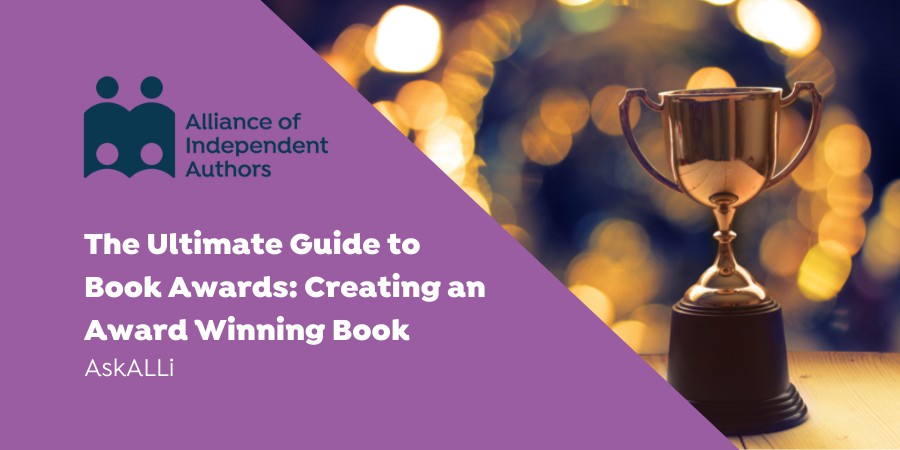
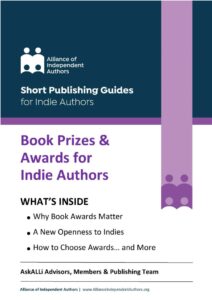
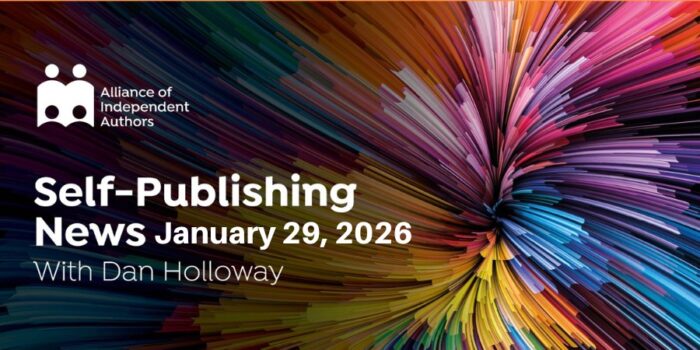
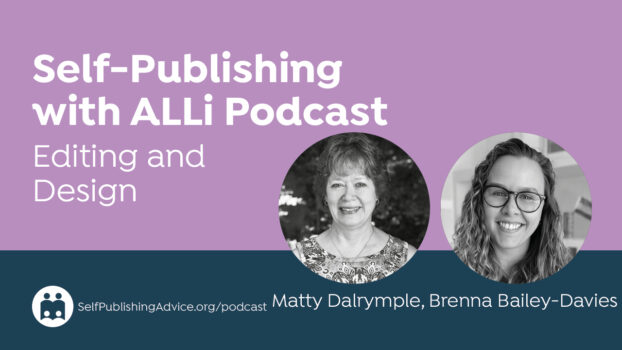
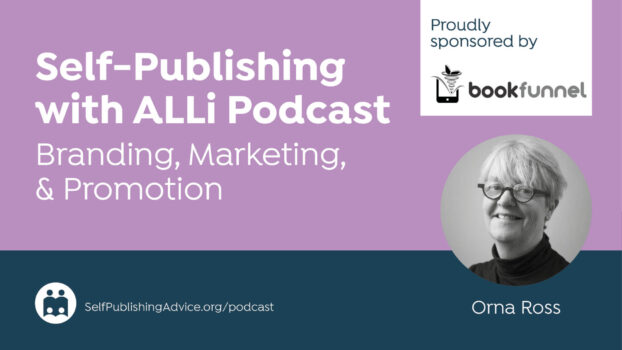
First time author